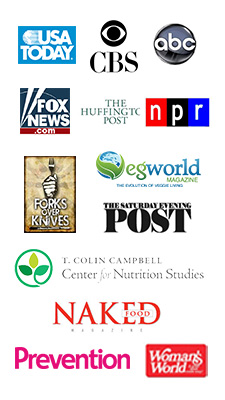Have you noticed? We are somehow much more interested in talking about food and eating than we are, for the most part, about exercise. Write a blog post about sneaking in workouts and post it right next to a new recipe, and guess what everyone wants to read first? The edible option.
Perhaps it is because eating is more fun than exercising. As a matter of fact, I’m certain that’s why. Discovering the reasons for this preference, however, makes us far better equipped to make the changes that are necessary for us to achieve our health, fitness, weight, and body shaping goals – goals that can only be won by a body not only well fed, but active as well.
It’s not your fault. Let’s talk about evolution, eating, and exercise. And then let’s get clear on exactly how to overcome your ‘take it easy’ instinct so you can take action on your drive for getting and staying fit.
3 reasons getting fit can feel like an uphill fight
As animals, staying alive is our primary drive – with the fingerprints of survival of the species all over it. Think about it – all evolutionary biology has one primary aim in mind, perpetuation of the species. Our bodies will do everything possible to insure that we survive to propagate. This fact underpins the reasons that doing what you need to do to be physically fit can present such a challenge.
There are many reasons our bodies do what they do, and that includes building up and loss of muscle, fat, and bone. Some of these we know a lot about, and many no doubt yet to be discovered. I don’t profess to know all of the whys, yet invite you to look at the challenges of getting yourself to exercise regularly in a new light. Knowledge can indeed be power.
Reason #1: we are inclined to lazy
In times of intermittent fuel- which could describe much of human history and pre-history dating back to our ancestral origins – conserving energy was paramount. Saving up energy for the possible emergency, or for lack of fuel sources, became biological necessity to insure survival of the species. Children seemingly defy this inclination to save energy by their apparent perpetual motion. Yet let’s remember that brains and bodies in the earlier stages need practice, practice, and more practice to hone coordination and motion management skills.
Our biology has not kept up with our technology. All the labor-saving devices and enough food for most of us to guard against hunger – hitched up with the save-energy gene – has us favor taking it easy. We confront this urge to check out of the work load every time we try to stir up the motivation to hit the gym – in whatever form exercise takes.
Reason #2: Muscle gobbles up energy
Think about it. Every article or lecture that seeks to inspire us to take up some sort of resistance training such as weight training leverages the motivating message that muscle tissue burns calories. More muscle thus means a ‘higher metabolic rate’ as the increased lean mass demands more energy just to maintain itself. We’re told that if we just build a little bit of muscle, we’ll ‘burn more fat even while we’re asleep’.
What we’re not told right out of the gate however is that maintaining hard-won muscle is an ongoing process. Muscle unchallenged will eventually decrease in size and strength. Chalk it up again to survival as the body adapts to decreased strength needs – and less muscle mass means fewer calories burned during and between bouts of activity. As a modern human, you may be wanting to maximize calorie burn to help with weight management. Your body doesn’t know that.
Reason #3: Lighter bones make for a lighter load
One of the most compelling reasons for placing an exercise demand on the body in the form of resistance training – along with weight-bearing activity with some degree of impact – is because these activities protect bone mass and stimulate formation of new bone. Every time muscle tugs against bone (as it does with resistance training) or is presented with an impact phenomenon (as happens when you run, jump, and climb), you stimulate the laying down of new mineral to the bone, building bone strength and offsetting loss of bone mass.
More, denser bone presents the body with yet another weight that needs to be schlepped around – and the more weight to schlep around, the more energy it requires to schlep.
Let’s loop back to the survival issue again. I repeat: “In times of intermittent fuel- which could describe much of human history and pre-history dating back to our ancestral origins – conserving energy is paramount. ” If conserving energy is of utmost importance, then creating a greater energy demand by increasing bone mass – which requires more energy to maintain – can actually be counter to the basics of survival.
What to do about it
Times have changed. We now find ourselves needing to engineer our days to include exercise rather than avoid it.
Luckily, regular exercise can become a pleasurable habit. At first it takes planning and discipline. Actually, it will always take planning and discipline but once you get hooked on the benefits of physical activity and a body well-challenged, there is a momentum that kicks in and helps carry you forward. The results of increased vitality, decreased stress, improved body composition, improvement in disease biomarkers, clarity of mind – just a starter list for the benefits of regular exercise – pull you forward to repeat performances.
Next time you bemoan the fact that it takes a cuppa courage to get up and go about your workout, you’ll have insights as to why. You’ll have a better understanding of why after just three to four days of a break from your resistance training routine, you start to lose muscle strength. After all, your body just wants to survive with the best tools it knows how: energy conservation.
Here’s my secret
But now you know better. Which means that in an instant you can reach further – beyond the impulse to pass on exercise today – to connecting with the way you will feel after a bout of activity, whether a short walk or a full blown workout. When you become emotionally connected to the well-being that is the result of exercise, I guarantee you will find making the shift easier than ever before.
That’s what I do. I look ahead to how I will feel once I get started…when I am done…when I slip into and spring out of bed that night and the next morning with a body that’s been exercise.
To develop the habit, start where you are. That means don’t go from being a casual three-times-a-week stroller to planning to run a marathon in a month. Your body will adapt to exercise, and then you can continue to present increasing demands on your body to create resiliency that you would previously never have thought possible.
And to fan the fire in the belly of your workout beast, go to 5 steps you can take to stop the struggle and get going with your workouts. And don’t forget that an entire chunk of Fit Quickies: 5 Minute Targeted Body-Shaping Workouts is devoted to mindset and motivation. Knowing the reasons why fitness can feel like an uphill fight changes the game.





Hi Lani,
What you say is so true, I have not been a great one for excercise in the past, but I had 2 total knee replacements and before the surgery the surgeon told me that I would never kneel again. And he was right, it hurt so bad to be on my knees for just a minute or two. But, he also told me if I didn’t excercise I would be in a wheelchair. I thought no way, I may be 73 but too young to end up that way and to put that burden on my husband. So, I started excercising 4-5 days a week and though I am not going to scrub my floor on my hands and knees I can kneel for a few minutes. At least long enough to get some floor excercise in.I have gone from a 24w to a 18-20 misses. So though I have to talk myself into it, it does work and is very beneficial.
Thanks, Maggie
Maggie,
What an inspiration! Thank you for sharing today because you make the BIG point that people meet challenges in different fashions – and you’ve stepped up to yours as only a winner can, or will. Go Maggie go!
Lani
After our too brief email exchange this week, this is a timely and much appreciated post today Lani! Thanks ever so much!
Sue, this is wonderful news to hear and thank you for your note!
Lani
Great post, Lani. Yes, it definitely IS mind over matter (and evolutionary biology) when it comes to fitness and exercise!